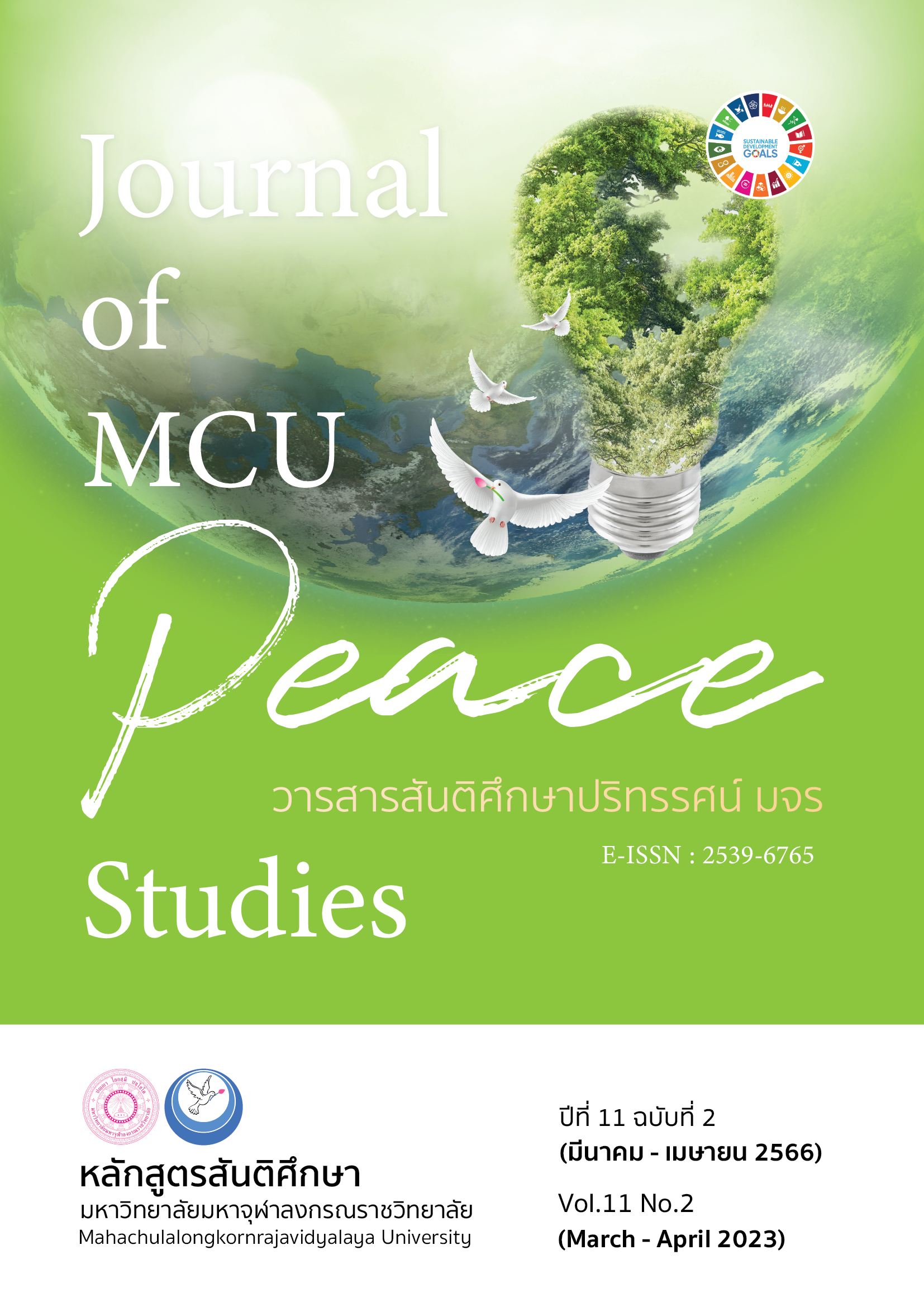การส่งเสริมสุขภาวะเด็กก่อนวัยเรียนศูนย์พัฒนาเด็กเล็ก สังกัดองค์กรปกครองส่วนท้องถิ่นในภาคตะวันออกเฉียงเหนือ
Main Article Content
บทคัดย่อ
บทความวิจัยนี้มีวัตถุประสงค์ เพื่อศึกษาสภาพการณ์และการส่งเสริมสุขภาวะเด็กก่อนวัยเรียน ศูนย์พัฒนาเด็กเล็กสังกัดองค์กรปกครองส่วนท้องถิ่นภาคตะวันออกเฉียงเหนือ กลุ่มเป้าหมาย ในการสัมภาษณ์ เชิงลึก คือ นายกองค์การบริหารส่วนตำบล 1 คน หัวหน้าศูนย์พัฒนาเด็กเล็ก 1 คน ผู้อำนวยการโรงพยาบาลส่งเสริมสุขภาพตำบล 1 คน ครูผู้ดูแลเด็ก 3 คน แม่ครัวที่ทำอาหารกลางวัน 1 คนและผู้ปกครอง 20 คน กลุ่มเป้าหมายการสนทนากลุ่มคือคณะกรรมการศูนย์พัฒนาเด็กเล็กและครูผู้ดูแลเด็ก 15 คน ครูผู้ดูแลเด็กก่อนวัยเรียน 282 คนและผู้ปกครองเด็กก่อนวัยเรียน 347 คน ในเขตสุขภาพที่ 7-10 เครื่องมือที่ใช้ คือแบบสอบถาม แบบสัมภาษณ์ การสนทนากลุ่ม วิเคราะห์ข้อมูลด้วยสถิติเชิงพรรณนา ได้แก่ ความถี่ ร้อยละ ค่าเฉลี่ย ค่าส่วนเบี่ยงเบนมาตรฐาน และการวิเคราะห์เนื้อหา
ผลการวิจัยพบว่า 1. การศึกษาสภาพการณ์พบว่า เด็กอายุ 0–5 ปี มีปัญหามีพัฒนาการล่าช้า ร้อยละ 5.64 มีพัฒนาการของสมองด้านการคิดเชิงบริหารโดยรวมล่าช้ามากกว่าเกณฑ์เฉลี่ยร้อยละ 30 และผู้บริหาร ให้ความสำคัญในการพัฒนาคน ครูผู้ดูแลเด็กมีจิตใจรักเด็ก พ่อแม่ผู้ปกครองมีส่วนร่วมในการส่งเสริมสุขภาวะครอบคลุมทุกด้าน 2. การส่งเสริมสุขภาวะเด็กก่อนวัยเรียนพบว่า ครูผู้ดูแลเด็กและพ่อแม่/ผู้ปกครองเด็กก่อนวัยเรียนมีความรู้ด้านการเล่นมากที่สุด มีทัศนคติต่อการส่งเสริมสุขภาวะเด็กก่อนวัยเรียนยู่ในระดับที่ไม่แน่ใจ และมีพฤติกรรมการส่งเสริมสุขภาวะเด็กก่อนวัยเรียนอยู่ในระดับมาก องค์ประกอบของการส่งเสริมสุขภาวะเด็กประกอบด้วย 1) ด้านปัจจัยส่วนบุคคล 2) ด้านปัจจัยภายในตัวเด็ก และ 3) ด้านปัจจัยแวดล้อม
Article Details

อนุญาตภายใต้เงื่อนไข Creative Commons Attribution-NonCommercial-NoDerivatives 4.0 International License.
ทัศนะและความคิดเห็นที่ปรากฏในบทความในวารสาร ถือเป็นความรับผิดชอบของผู้เขียนบทความนั้น และไม่ถือเป็นทัศนะและความรับผิดชอบของกองบรรณาธิการ ยินยอมว่าบทความเป็นลิขสิทธิ์ของวารสาร
เอกสารอ้างอิง
Boonjeam, S. et al. (2021). Smart Early Childhood in The Northeast Region. KKU Research Journal (Graduate Studies), 21(4), 196-209.
Chutabhakdikul, N., Thanasetkorn, P., Lertawasdatrakul, O., & Ruksee, N. (2017).Tool Development and Evaluation Criteria for Assessment of Executive Function in Early Childhood. Bangkok: Mahidol University.
Department of Children and Youth Affairs, Ministry of Social Development and Human Security. (2018). Child and Youth Development Report for the year 2017. Bangkok: Department of Children and Youth Affairs: Ministry of Social Development and Human Security.
Department of Education and Children's Services Wellbeing Is Central to Learning, (2005). A Working Paper. South Australia: DECS Publishing.
Department of Mental Health, Ministry of Public Health. (2016). Confident Thai Children with Good IQ, Outstanding EQ" Situational Survey of Intelligence and Emotional Intelligence among Thai Children in Grade 1. Nonthaburi: Department of Mental Health, Ministry of Public Health.
Julius, G. (2016). Early Childhood Education: The Key to Success. Spring.
Jundaboot W., Yoosook W., & Semrum, W. (2019). Development Guideline for Promotion of Pre-Schoolers in Child Development Center, Sewichian Municipal District, Numyuen Disrict, Ubonratchathani Province. Journal of Education Research Faculty of Education, Srinakharinwirot University, 13(1), 208-219.
Kaemkate, W. (2008). Research Methods in Behavioral Sciences. (2nd ed.). Bangkok: Printing House of Chulalongkorn University.
Kongsanoh, S. (2015). Early Childhood Care and Education in Early Childhood Education, the Heart of Education.
Monpianjan, C., Sarnrattana, W., & Namsiri, S. (2013). A Holistic Approach to Early Childhood Educational Management in Sub-district Administrative Organizations: A Case Study of Dong Pong ECDC, Sila Sub-district Administrative Organization, Khon Kaen Province. National Academic Conference "Graduate Research Conference 2013". Khon Kaen University.
Mooltripakdee, W. (2012). A Development in Early Childhood Education Model for the Northeast Rural Community, Thailand. Sripatum Chonburi Journal, 10(2), 99-109.
Nakunsong, T. et al. (2010). Development of a Teaching Model for Child Care Centers under Local Government Organization: Practices of Local Wisdom. Rajabhat Mahasarakham University Journal, RMU.J., 4(1), 77-88.
Nammanee, S., Ketsiri, A., & Pakotang, J. (2014). An Effective Model of Children Development Centre Administration under Local Administration Organization. Journal of Research and Development Buriram Rajabhat University, 9(2), 114-126.
National Early Childhood Development Board. (2019). National Standard for Early Childhood Development Centers. Documents for the Meeting Explaining the Guidelines for the Implementation of the National Child Development Center Standards, Thursday 7 February 2019, Time 13.00 – 15.00. at Bangkok Ballroom, 2nd Floor, Royal City Hotel, Bangkok.
National Statistical Office. (2016).The Situation Survey of Children and Women in Thailand 2015-2016. Bangkok: National Statistical Office.
Office of the Health Promotion Foundation (Thai Health) and the Office of Child, Youth, and Family Health Support (Office 4). (2017). Seedtizen Seed Citizen: Situation Report for Children, Youth, and Families in 2017. Bangkok: Office of Child, Youth, and Family Health Support.
Pengsrikhot, S., & Maputh, C. (2011). Parental Participation Model in Early Childhood Education Management. Journal of Education and Social Development, 7(1), 68-82.
Phasunon, P. (2015). Validity of Questionnaire for Social Science Research. Journal of Social Sciences Srinakharinwirot University, 18(18), 375-396.
Sukram, S., & Ruangsuwan, C. (2017). Development of Management, Child Development Centers Organization Rule Local Government in Udon Thani. Journal of Education Mahasarakham University, 11(3), 161-174.


